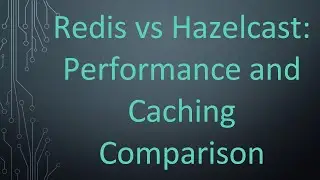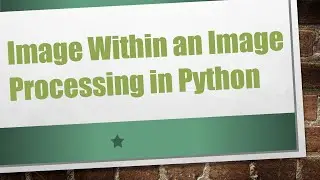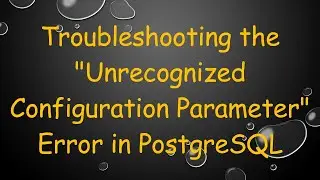Resolving ORA-00937: not a single-group group function Error in PL/SQL Packages
на канале: vlogize
Learn how to effectively troubleshoot and resolve the `ORA-00937` error when working with PL/SQL packages, with a focus on proper usage of GROUP BY clauses.
---
This video is based on the question https://stackoverflow.com/q/70461762/ asked by the user 'Valtesar' ( https://stackoverflow.com/u/17638543/ ) and on the answer https://stackoverflow.com/a/70461968/ provided by the user 'Littlefoot' ( https://stackoverflow.com/u/9097906/ ) at 'Stack Overflow' website. Thanks to these great users and Stackexchange community for their contributions.
Visit these links for original content and any more details, such as alternate solutions, latest updates/developments on topic, comments, revision history etc. For example, the original title of the Question was: The package ends with a failed status. ORA-00937 not so easy
Also, Content (except music) licensed under CC BY-SA https://meta.stackexchange.com/help/l...
The original Question post is licensed under the 'CC BY-SA 4.0' ( https://creativecommons.org/licenses/... ) license, and the original Answer post is licensed under the 'CC BY-SA 4.0' ( https://creativecommons.org/licenses/... ) license.
If anything seems off to you, please feel free to write me at vlogize [AT] gmail [DOT] com.
---
Understanding the ORA-00937: not a single-group group function Error
If you've encountered the error message ORA-00937: not a single-group group function while working with PL/SQL packages, you're not alone. This common issue arises in the context of SQL queries that utilize aggregate functions without adhering to required grouping rules. Although the solution may seem straightforward, ensuring you follow the correct guidelines is crucial for resolving this error effectively.
This guide will walk you through the key aspects of this error, how it manifests in your code, and how to fix it properly. Let's dive in!
The Problem: Why Does the Error Occur?
The error typically occurs when the SQL SELECT statement includes aggregate functions (like SUM, COUNT, AVG, etc.), but the GROUP BY clause does not include all non-aggregated columns. This leads the database to become confused about how to group the rows that don't involve aggregation.
Example Scenario
In the context provided, the package compiles correctly but fails when executed, returning the following error trace:
[[See Video to Reveal this Text or Code Snippet]]
Upon inspection, we find that the SELECT clause includes non-aggregated columns such as s.chapter, substr(acc_d.account_number, 1, 5), and acc_d.char_type, but these columns were not included in the corresponding GROUP BY clause.
The Solution: Fixing the Grouping Issue
To resolve the error, we need to ensure that every non-aggregated column in the SELECT statement is also present in the GROUP BY clause. This guarantees that each row's values are correctly accounted for in the groups formed around the aggregate functions.
Correcting the SQL Structure
Current SELECT Structure:
[[See Video to Reveal this Text or Code Snippet]]
Current GROUP BY Structure:
[[See Video to Reveal this Text or Code Snippet]]
Revised GROUP BY Clause:
[[See Video to Reveal this Text or Code Snippet]]
By adding trunc(i_OnDate, 'mm') and last_day(i_OnDate) to the GROUP BY clause, we align the grouping in such a way that the SQL engine understands how to process the aggregates correctly without causing the error.
Conclusion
The ORA-00937: not a single-group group function error can be frustrating, especially when you're confident that your query logic is sound. However, careful attention to the alignment between the SELECT and GROUP BY sections can prevent this issue from arising. As a best practice:
Always check that all non-aggregated columns in your SELECT statements are included in the GROUP BY clause.
Review your querying logic to ensure it is as clear and concise as possible.
By following these tips, you can save yourself from recurrent errors and keep your PL/SQL packages running smoothly. If you have further questions or need additional assistance, feel free to reach out in the comments below!

![Vakabular Sample Pack Vol. 1 Demo [Tech & Prog]](https://images.mixrolikus.cc/video/pHfyFVMnAnI)





























